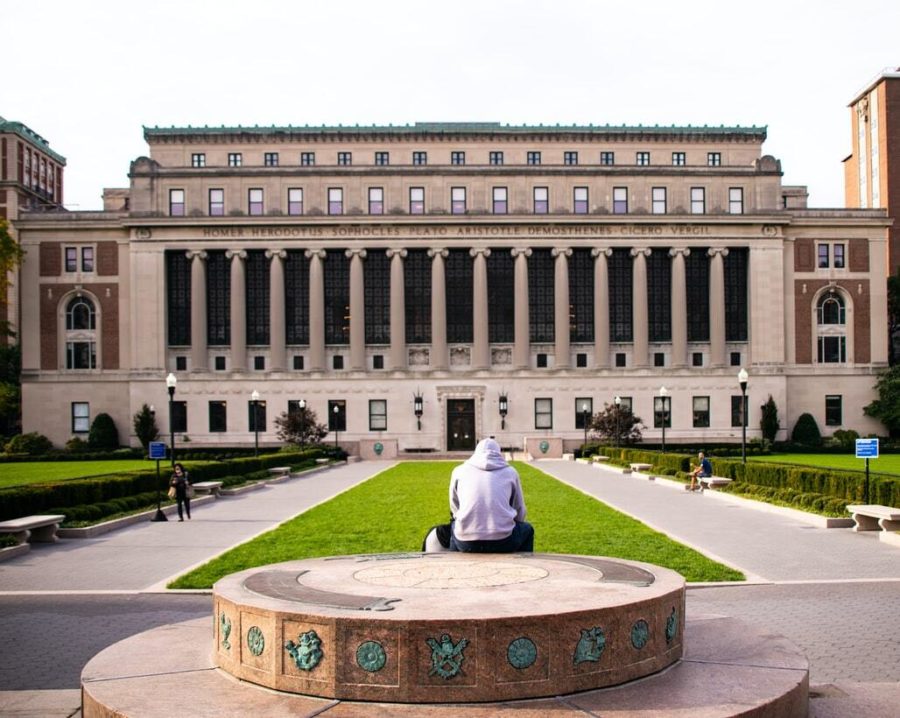Advice on Choosing the Right College For You
A conversation with Ms. Raven Wilhelm, Bronx Science English teacher, regarding advice on the college process.
Ms. Wilhelm currently attends Columbia University for graduate school. Her years of schooling have enabled her to offer much wisdom on the college process for Bronx Science students.
Congratulations to all of the seniors who received early decision and early action offers to college! Further congratulations go to all seniors for finishing the arduous journey of completing their college applications for the fall of 2022. For the rest of us, however, finding a place to start in the college process can be daunting and challenging.
I have had hopes and dreams of attending college for as long as I can remember. As a child, all I could think about was the freedom that it could bring me (no parents around!), but I’ve come to realize that there is a lot more to college than just being away from home.
Choosing the next institution to call my home for four years, or maybe more, is no small task. With over 5,300 colleges and universities to choose from in the United States, sometimes all of the options available can seem overwhelming.
For some advice on where to start with the college application process, I asked Ms. Raven Wilhelm, an English teacher at Bronx Science. Her pursuit of knowledge placed her at Columbia University for graduate school, where she is currently in the process of obtaining her fourth master’s degree. Below is a transcript of our interview, which has been edited for clarity.
Where is the best place to start when looking for colleges ?
I would start with the place in your heart you want to go to, whatever school that is. Something else I usually think about is what you want to do with your career. I would look into college programs that relate to that specific discipline. Let’s say for instance if it’s pediatrics, you would want to look up the best pediatric schools.
What is something you consider often overlooked in the selection process?
A lot actually! So one of the things I noticed often, especially with students, is that they would not look at both majors and minors. As someone who majored in English and had a lot of background in psychology, I was always told that I should minor in psychology but no one had told me that I had that option. So I believe that considering the offered majors and minors is something that is often overlooked, along with the issue of tuition costs. Everyone knows ‘I need to get financial aid,’ but fewer people know the differences in tuition based on different schools. The price of a CUNY education is going to be different from a SUNY education, and a SUNY education is going to cost differently from a private college or university.
What matters more, value or name?
There’s something to say about those names and what it means on a résumé. I would say that the education you receive is a different conversation. But definitely when a potential employer says, “Wow, you graduated from Columbia,” it opens up different doors for you.
Does online research provide enough information for prospective students?
No. I think half of it is researching online and half of it is field research, like actually putting yourself in places where you can observe and engage.
What if you were unable to do that due to Coronavirus pandemic restrictions?
Think about the mediums by which you can observe, like using YouTube, or using videos, documentaries, where you can still engage even though it may not be completely authentic. You can still have something to see in real time, besides seeing words on a page.
What do you think is the best way to contact alumni?
I think definitely starting out with emails is the best way, which also goes to show why writing is so important, because a great email will catch someone’s eyes. They’ll be interested and think, “Oh this person sounds super intelligent, or they sound super friendly, or eager to learn.” I definitely think it is important to utilize people you know in the building who may be connected to alumni or who know a way of getting in contact with alumni. You can also Google alumni because a lot of them have foundations, organizations, and businesses. If you went to similar schools, I find it really hard to believe that they would not open their doors to want to be a mentor to someone.
How important is the location?
I think the location matters based on what you need. So someone like me – I like city life – could not handle being in a rural place because I get kind of bored, but some people prefer rural environments. Others prefer smaller institutions because of the individualized attention they can receive there. I like bigger institutions because of how much networking I can do. I think it really depends on your personality and what you need as a learner.

(Jean-Luc Benazet / Unsplash)
When do you think is the best time to start this process?
Before 11th grade. However, a lot of students wait to start the college process in 11th grade, and I think that’s what adds on to the feelings of stress because 11th grade is already stressful. If you have an idea of what schools you want to go to before 11th grade, that helps.
Let’s say you were struggling a little in school right now, what would you do to find a college that is suitable for you?
I go back to the passion. Just because our parents say they want us to be doctors does not mean I wouldn’t try to apply myself to something that I’m not wholeheartedly interested in. I also tell students to look at all of their clubs, activities, and extracurriculars in which they partake in at Bronx Science. Let’s say you’re interested in becoming a lawyer, but you’re not completely sure. If that school has certain programs like extracurricular programs that you really enjoy, that might help bridge whatever gap there is. And those places and clubs are good places where you can network with people!
* * *
There are many decisions that must be factored in, when you choose a college or university that you decide is best for you, but it takes time to find something perfect. Consider options such as what your school can provide to you, other than just the education they provide. For example, what are the characteristics of the student body and the faculty? What extracurricular activities are available?
A strategy is to take time to make a list of all the things you want in your college. Rank them according to what drives you the most, and take those into the most consideration. Perhaps there is a certain course or major that really speaks to you in a specific college, but it does not suit your financial needs. There could be another college that has lots of similar courses, or maybe a major that speaks to you almost as strongly, and that college does provide the financial need. Consider whether or not that course or major matters more to you than financial aid.
There is one key takeaway from my interview with Ms. Wilhelm that I wish I had known earlier, even though it may seem like common sense.
“Start before 11th grade,” and I’ll make one thing really clear, start before 11th grade.
Bronx Science has a team of amazing guidance counselors who can work with you as you move through high school. Sometimes, a little bit of advice goes a long way into helping you come to a decision. In the same hallway as the Guidance Suite, you can locate the College Office. Never be afraid to reach out and ask for help when you need it.
Choosing the next institution to call my home for four years, or maybe more, is no small task. With over 5,300 colleges and universities to choose from in the United States, sometimes all of the options available can seem overwhelming.
Eddie Jiang is a Staff Reporter for 'The Science Survey.' He believes that journalistic writing should not just provide a surface understanding of any...

